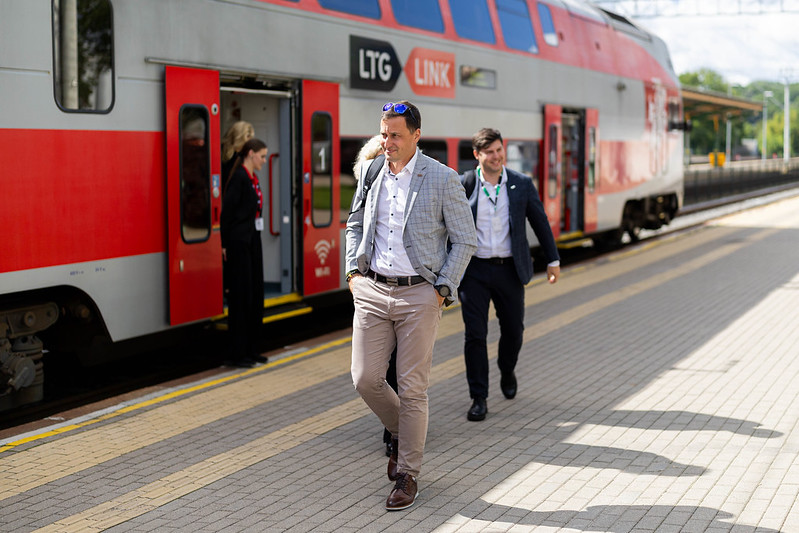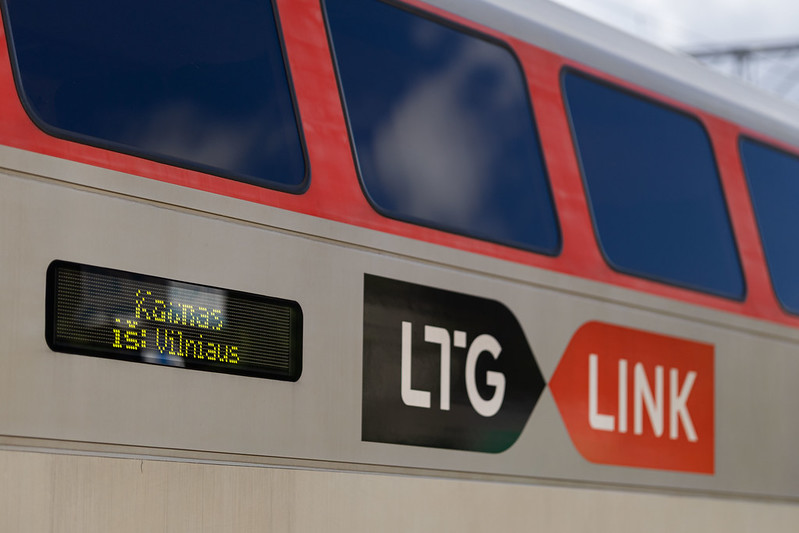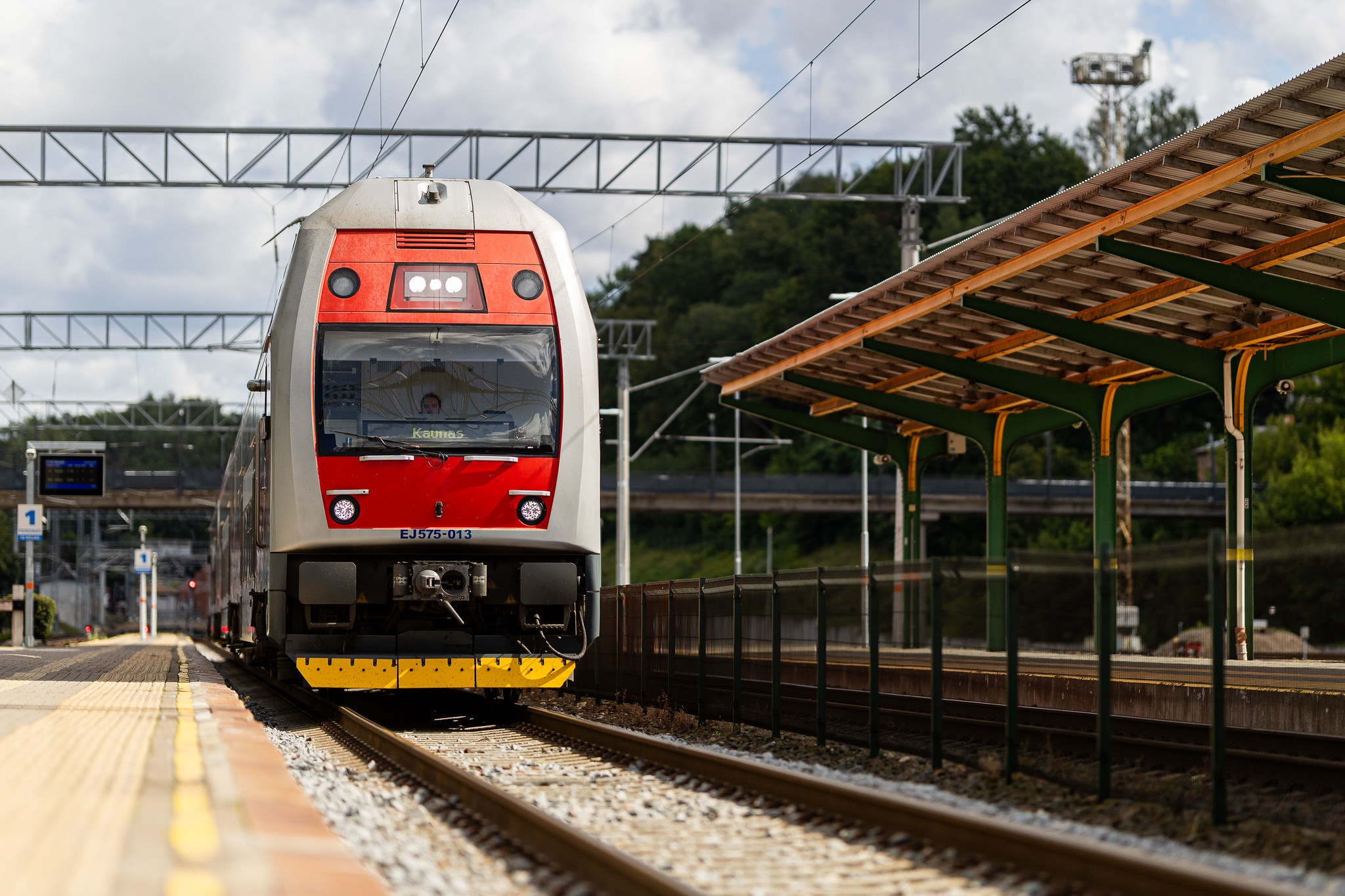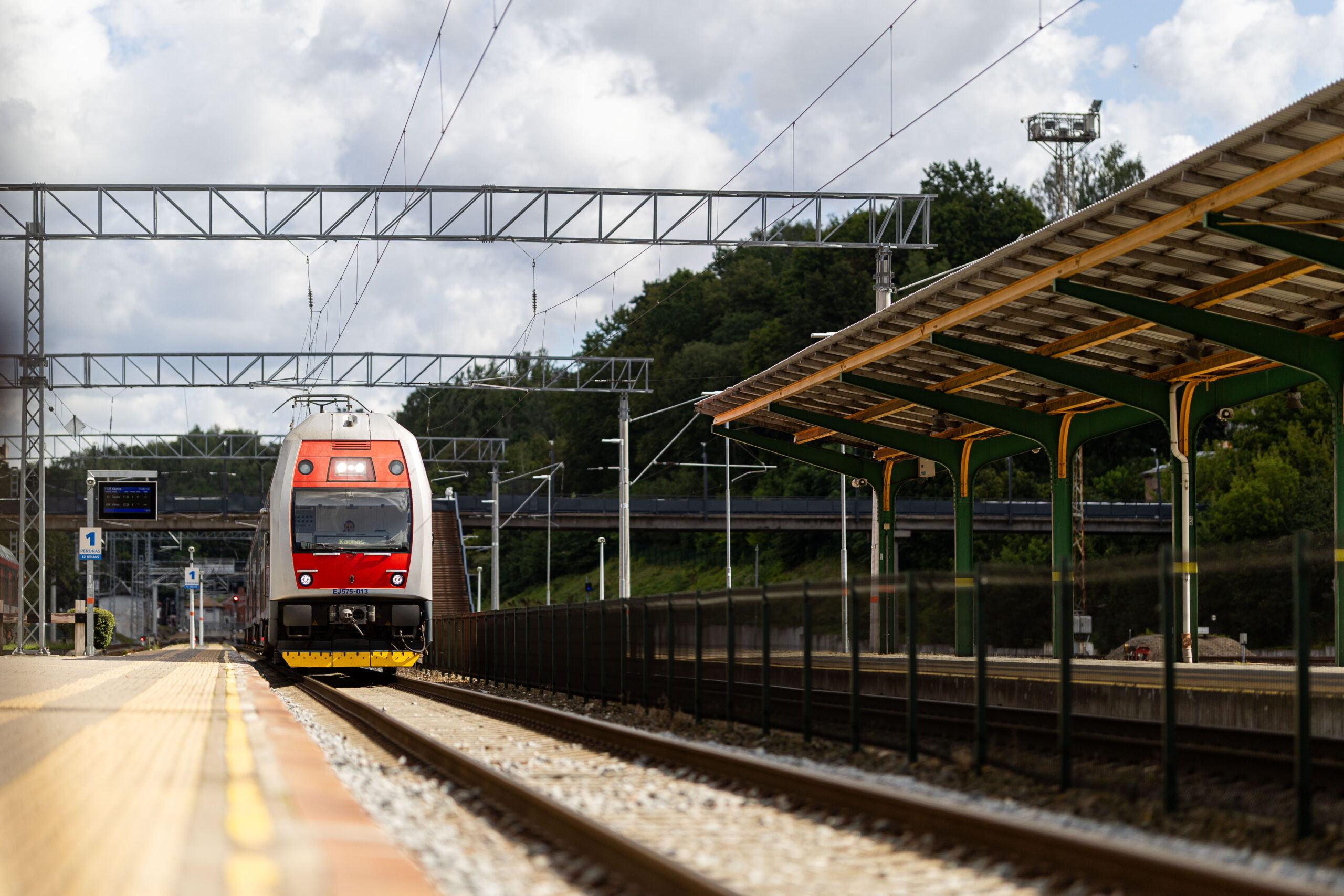Rail Baltica has taken a significant step forward with the signing of a EUR 38.31 million contract for design and design supervision services on the 96 km stretch from the Lithuania–Poland border to Kaunas (Jiesia). The contract – procured through a competitive public tender – was signed by RB Rail AS, the Rail Baltica joint venture, together with LTG Infra, Lithuania’s national project implementer, and DB Engineering & Consulting.
Eugenijus Sabutis, Lithuania’s Acting Minister of Transport and Communications, emphasized the urgency of progress on this cross-border section.
“The Rail Baltica link with Poland is our gateway to the West. We expect it to be the first route where high-speed, European standard-gauge trains will begin operating. I am pleased with the project’s progress – it brings us closer not only to faster and more convenient travel, but also plays a vital role in strengthening the security and development of the entire Baltic region,” says Eugenijus Sabutis, Acting Minister of Transport and Communications of Lithuania.
According to Egidijus Lazauskas, CEO of the LTG Group, the selected design services provider is a reputable and trusted international company with global experience, which ensures that the project will proceed smoothly.
“The section connecting us with bordering Poland is a high priority for us, and we are working closely with our counterparts in the neighboring infrastructure operator. This contract already identifies priority segments that will be designed first. Looking ahead, we plan to announce the tender for construction works in advance, securing the necessary resources to commence preparatory construction activities as soon as possible,” stated Lazauskas.
DB Engineering & Consulting will design the electrified double-track railway from the Polish border through Marijampolė, extending onwards to Kaunas (Jiesia). The new standard-gauge European line will feature connections to the existing Rail Baltica line, which will continue to be utilized for freight transportation, including military mobility cargo. Additionally, the project will implement the necessary traffic control and signaling systems to enable faster and more efficient train operations.
“Poland remains a key strategic partner in Rail Baltica,” added Marius Narmontas. “It’s the only participating country with an operational 1435 mm rail network, providing the essential link to the rest of Europe. Much of the Polish section is already upgraded, and the remaining stretch toward Lithuania is in design—ensuring a synchronized connection on both sides of the border. The Kaunas–Poland section is the gateway that will unlock Rail Baltica’s full potential.”
As DB Engineering & Consulting Managing Director for International Markets and Consulting, Board Member Stefan Geisperger states, DB continues its eight-year involvement in the Rail Baltica Global Project.
“We have been contributing our expertise to strengthen European rail connectivity. This new contract for the section from the Kaunas Urban Node to the Polish border represents another milestone for DB Engineering & Consulting. Working alongside RBR Rail AS and AB LTG Infra, we are helping develop a modern, electrified standard gauge railway. This infrastructure will play a key role in connecting the Baltic States with Central Europe through a sustainable, high-speed rail network,“ said Geisperger.
DB Engineering & Consulting brings extensive experience to the project, having contributed to key Rail Baltica components, including the Shadow Operator consortium and the design of the region’s first dual road-rail bridge over the Daugava River in Riga.
The connection from the Poland–Lithuania border to Kaunas will significantly boost both passenger and freight mobility along the North Sea–Baltic corridor. For freight operators, it offers a faster, greener alternative to road transport, advancing Europe’s decarbonization and modal shift goals.
The project is well into its construction phase, with active development underway across all three Baltic countries. By the end of 2025, 43% of the mainline is expected to be construction-ready and progressing.
More pictures are available here.



